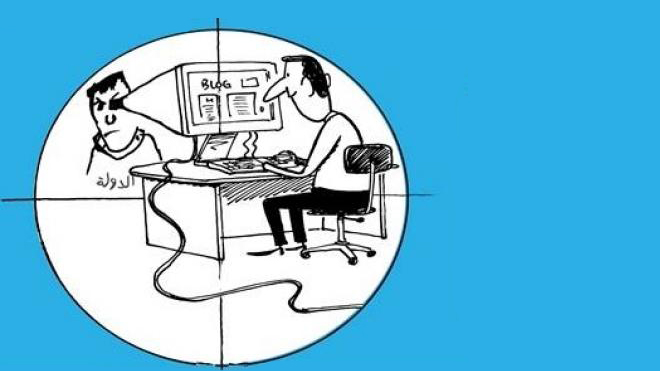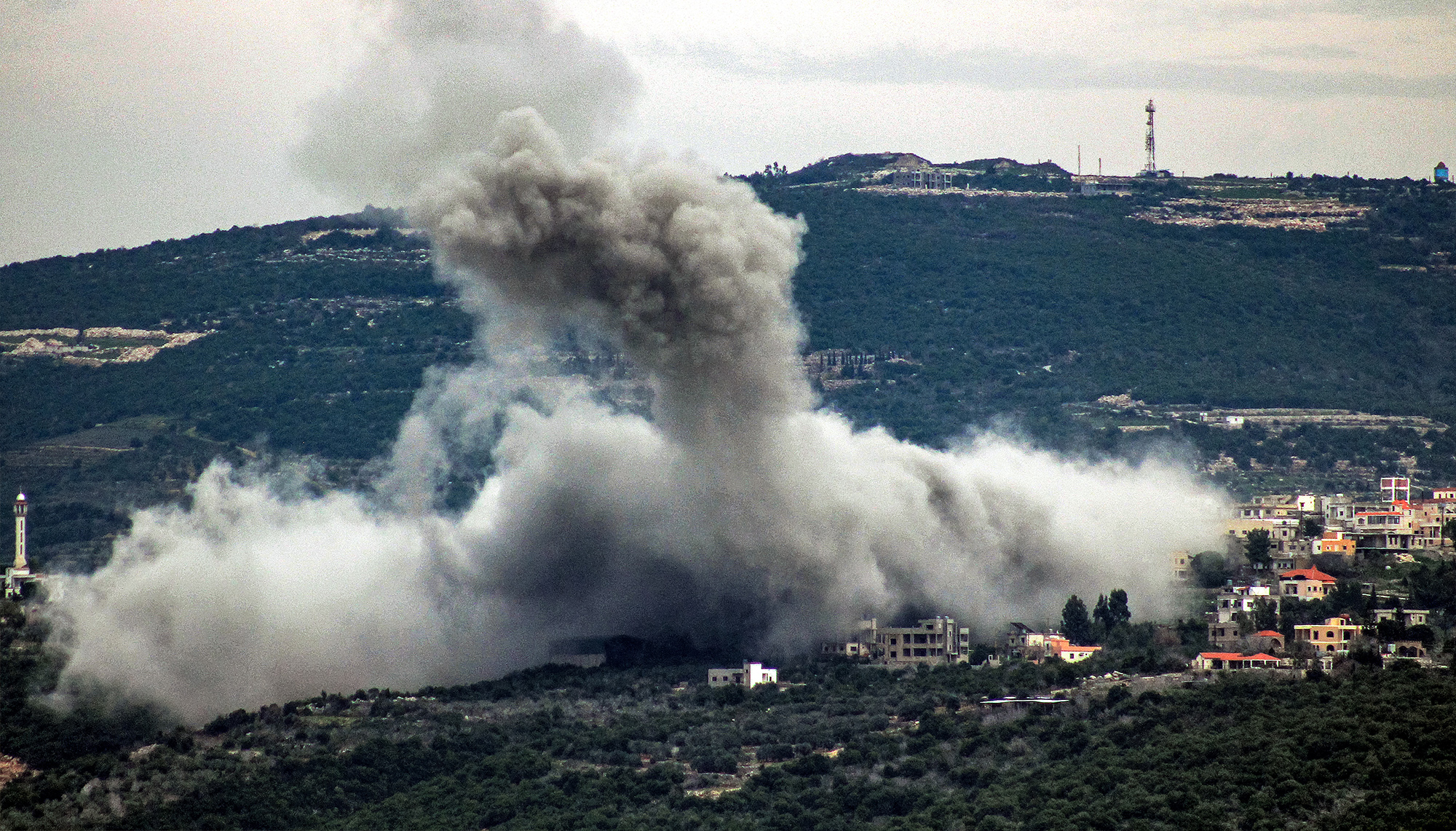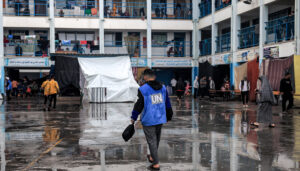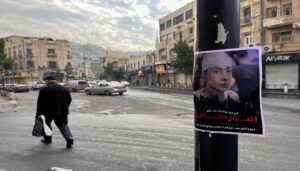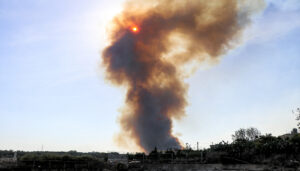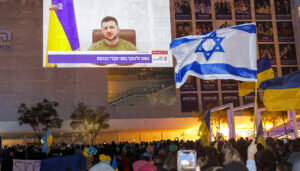By Hiba Zayadin
** This article was published on IFEX.org on 28 March 2014, based on IFEX member reports from Maharat Foundation , Reporters Without Borders ,and the Arabic Network for Human Rights Information. The graphic image is created by the Maharat Foundation as part of its “Express Freely” competition, launched to encourage university students to support press freedom in Lebanon.
After turning to the digital sphere to bypass political control over the mainstream media, bloggers and journalists are facing new restrictions online. Although Lebanon has long been considered to have one of the most open and diverse media environments in a region dominated by dictatorships, it is no stranger to restrictions on free expression.
What makes the Lebanese case so unique is that, unlike other Arab countries where government interference is the biggest hurdle standing between a journalist and his freedom to report, the restrictions in Lebanon have their origins in the country’s sectarian and political structures.
The Lebanese media are relatively free from government interference because the country is governed by a coalition of tribal-sectarian figures who are often at odds with each other when it comes to governance.
These political and religious leaders also own and control most television stations, radio networks and newspapers operating in Lebanon, which explains why Lebanese enjoy access to a wide variety of views and perspectives. However, it also leaves no space in the mainstream media for objective or neutral reporting that serves the Lebanese society as a whole.
As the space for free expression in traditional media outlets in Lebanon has narrowed, the popularity of blogging has grown. In the wake of Rafik Hariri’s assassination in 2005, which further deepened the sectarian divide, more and more Lebanese started to seek out blogs for unbiased and independent commentary on the political and social scene in the country.
But bloggers and online journalists have not entirely escaped the pressures faced by the country’s mainstream media. The most serious threat they face in Lebanon today is the country’s slander and libel laws.
A Cybercrime Bureau was established in 2006 to provide the public prosecution with the necessary technical expertise to deal with internet-related crimes. The bureau is attached to the Special Criminal Investigations Unit at the Internal Security Forces (ISF) but was not established according to legal protocols. A general lack of clarity relating to the power and scope of the bureau exists, yet, as of late, several journalists and bloggers were summoned to the bureau to undergo comprehensive criminal investigations over statements they had made online.
..aside from the fact that bloggers in Lebanon now wield a certain degree of influence in shaping public opinion on social networking sites, they are increasingly facing legal harassment because they are independent
Maharat News, a multimedia platform run by IFEX member Maharat Foundation in Lebanon, reported on three cases during the last couple of months in which bloggers were legally harassed for posts they published on their blogs.
On 13 March, prominent blogger and online journalist Imad Bazzi was interrogated for three hours by the Cybercrime Bureau after former Minister of State Panos Mangyan filed a slander lawsuit against him. In his complaint, Mangyan referred to a blog post Bazzi wrote last December in which he cited an abuse of power by the former minister. His case has been referred for prosecution.
This was not the first time Bazzi was harassed as a result of his writing. He has been arrested, interrogated, and intimidated several times in the last few years, as have others who have criticised a public figure or institution in Lebanon.
On 20 March 2014, Reporters Without Borders (RSF) published a comprehensive article detailing recent verdicts against journalists and media organisations by the country’s publications court, which was established to settle disputes over defamation and libel cases.
Three of the journalists mentioned in RSF’s report were sued for defamation for publishing articles exposing corruption.
According to Maharat News, the case of blogger and activist Rita Kamel, who is being sued for writing about a possible fraud attempt by the organizers of the Pan Arab Web Awards Academy on her blog, has also been referred to the publications court.
Layal Bahnam, program officer at Maharat, pointed out that aside from the fact that bloggers in Lebanon now wield a certain degree of influence in shaping public opinion on social networking sites, they are increasingly facing legal harassment because they are independent. “They are not affiliated with political parties, which makes them the weakest link, as opposed to journalists who are backed by the media organisations they work for,” she said.
Bloggers and activists have not let this abuse of their right to freely express themselves go unheeded.
Gino Raidy, another prominent blogger dubbed “Beirut’s Biggest Blogger” by Rolling Stone magazine in September 2013, published a detailed account of his encounter with the Cyber Crimes Bureau. A complaint was filed against Raidy by an e-commerce company accusing him of libel for writing an article critical of one of their products.
In concluding, Raidy stressed the gravity of the situation facing bloggers in Lebanon today. “The fact that a slander and libel case is taken into criminal court and a criminal investigation undertaken is horrendous. The fact that a lawyer isn’t allowed with you, is scary, the fact you actually need to show up physically and file a deposition under threat of 48 hour detention that can be renewed and attempt to entrap you by signing a commitment that is incriminating to you in its wording, is outright bullying, and happening way too often in Lebanon.”
Bloggers and activists across Lebanon have also voiced their outrage by joining an online campaign launched by Maharat. Using the hashtag #NotACriminal, in both Arabic and English, people are taking to Twitter in protest.
When it comes to portraying the determination Lebanese citizens have in protecting and fighting for their right to free expression, Bazzi says it best in his Twitter bio: “Changing Lebanon 1KB at a time.”
